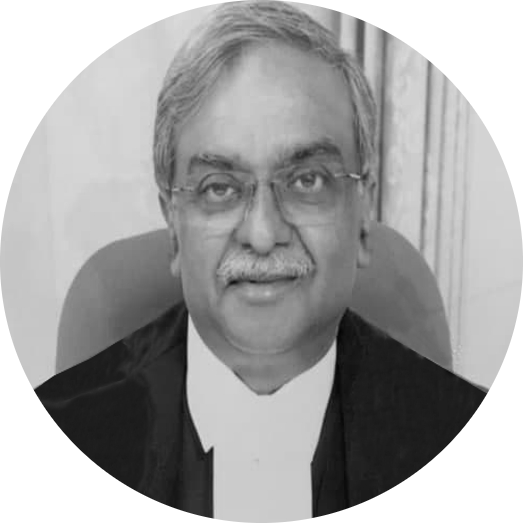Supreme Court: In a set of two criminal appeals against Bombay High Court’s decisions, wherein the accused persons’ petitions under Section of (‘CrPC’) seeking quashing of the FIR for offences punishable under Sections , and of the (‘IPC’) along with Section r/w of the (‘PC Act’) were dismissed, the Division Bench Vikram Nath and Prasanna B. Varale, JJ. upheld the High Court’s decision holding that it was justified in not exercising its jurisdiction under Section of .
Background
The accused persons are the Directors of Sun Infrastructure Pvt. Ltd. (‘Company’) and employees of respondent 3- State Bank of India. On 15-02-2014, respondent 3- Bank sanctioned a loan of Rs.50 crores to the Company. The Company opened a collateral security and mortgaged the commercial land. Timely payments were made till 2017, and on 28-11-2017 the bank declared the Company’s loan account as a Non-Performing Asset with an outstanding amount of Rs. 23.86 crores. The Bank filed an application before the Debt Recovery Tribunal. The Company and respondent 3 filed consent terms before the DRT amounting to Rs. 15 Crore according to which the Company paid Rs. 20 lacs and the Rs. 14.88 crore was to be paid with interest, and the loan account would be closed as per the one-time settlement.
Later, the Bank lodged a complaint with the Central Bureau of Investigation, against the accused persons for diverging the funds from the loan account of respondent 2, SICOM Ltd. from whom they had allegedly availed a loan of Rs.25 Crores in 2013; and against the Company for changing the building plans of the project which resulted in the reduced value of the collateral security, without the Bank’s consent of the Bank. Subsequently, the CBI filed an FIR. The accused persons preferred a petition before the High Court under Section of the seeking to quash the FIR and chargesheet observing that the accused persons had a substantive alternative remedy under the provisions of the before the High Court.
Analysis and Decision
The Court noted that in Parbatbhai Aahir v. State of Gujarat, it was observed that, economic offences involving the financial and economic well-being of the State have implications which lie beyond the domain of a mere dispute between the private disputants. The High Court would be justified in declining to quash the proceeding or FIR where the offender is involved in an activity akin to financial or economic fraud or misdemeanour.
“Economic offences by their very nature stand on a different footing than other offences and have wider ramifications. They constitute a class apart. Economic offences affect the economy of the country as a whole and pose a serious threat to the financial health of the country. If such offences are viewed lightly, the confidence and trust of the public will be shaken.”
The Court relied upon State of T.N. v. R. Vasanthi Stanley, wherein the Court declined to quash the proceedings in a case involving alleged abuse of the financial system, observing that- “A grave criminal offence or serious economic offence or for that matter the offence that has the potentiality to create a dent in the financial health of the institutions is not to be quashed on the ground that there is delay in trial or the principle that when the matter has been settled it should be quashed to avoid the head on the system. That can never be an acceptable principle or parameter, for that would amount to destroying stem cells of law and order in many a realm and further strengthen the marrow of unscrupulous litigations. Such a situation should never be conceived of.”
In the instant case, the Court noted that consent terms were submitted by the parties before the DRT. The Court also noted that the bank suffered losses to the tune of Rs. 6.13 Crores approximately, causing a substantial injury to the public exchequer and consequently public interest was hampered. Also, considering that a special statute i.e. PC Act was invoked, the Court opined that quashing of offences under the PC Act would have a grave and substantial impact not just on the parties involved, but also on the society at large. Hence, the Court upheld the High Court’s decision of declining to exercise its inherent powers in the present case, thereby refusing to quash the criminal proceedings.
CASE DETAILS
| Citation: Appellants : Anil Bhavarlal Jain Respondents : State of Maharashtra | Advocates who appeared in this case For Petitioner(s): Ms. Malvika Trivedi, Sr. Adv.; Mr. Mahinder Singh Hura, Adv.; Mr. Jasmeet Singh, AOR; Mr. Saif Ali, Adv.; Mr. Pushpendra Singh Bhadoriya, Adv.; Mr. Vijay Sharma, Adv.; Mr. Pranav Menon, Adv.; Mr. Saurav, Adv.; Mr. Siddharth Bhatnagar, Sr. Adv.; Ms. Ranjeeta Rohatgi, AOR; Mr. Vivek Punjabi, Adv.; Ms. Shrika Gautam, Adv. For Respondent(s): Mr. Samrat Krishnarao Shinde, Adv.; Mr. Siddharth Dharmadhikari, Adv.; Mr. Aaditya Aniruddha Pande, AOR; Mr. Mukesh Kumar Maroria, AOR; Mr. Sanjay Kapur, AOR; Mr. Surya Prakash, Adv.; Mr. Arjun Bhatia, Adv.; Ms. Divya Singh Pundir, Adv.; Mr. Devesh Dubey, Adv.; Ms. Mahima Kapur, Adv.; Ms. Shubhra Kapur, Adv. |
CORAM :

Vikram Nath, J.

Prasanna B. Varale, J.
Buy Code of Criminal Procedure, 1973
Buy Penal Code, 1860
Buy Prevention of Corruption Act, 1988
The post appeared first on .
